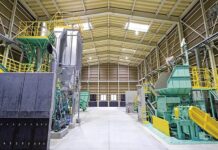Construction projects rely heavily on efficient transportation logistics to succeed. Materials, equipment, and supplies must arrive at job sites on time and in perfect condition. This intricate dance of deliveries keeps projects moving forward and on schedule.
Truck drivers are the unsung heroes of construction logistics. They navigate busy highways, congested city streets, and challenging job site entrances to ensure critical resources reach their destinations. Substance Abuse Professional (SAP) programs play a vital role in maintaining safety and compliance within the construction industry’s transportation network.
SAP programs help ensure that drivers operating commercial vehicles remain fit for duty. These initiatives safeguard not only the drivers themselves but also other road users and valuable cargo. By promoting a drug-free workplace, SAP programs contribute to the overall safety culture that is essential in the high-risk construction environment.
Understanding the Role of Truck Drivers in Construction Logistics
Truck drivers are understandably important in construction logistics as they serve as the vital link between suppliers and construction sites. Their primary responsibility is to transport materials, equipment, and supplies to and from project locations.
Having materials delivered on time is essential for keeping construction projects on schedule and within budget. Delays can quickly snowball into problems, starting with idle workers and ending with extended project timelines and increased costs. Though external factors such as adverse weather can’t be avoided, having reliable and alert drivers helps to minimise internal project risk factors and therefore maintain project momentum.
Construction logistics often involve specialized transportation needs. Drivers must be adept at operating heavy vehicles and handling oversized loads. They also need to be trained in the safe transport of hazardous materials, adhering to strict regulations and safety protocols.
The job of a construction truck driver comes with significant challenges:
- High-stress environment
- Long working hours
- Strict delivery deadlines
- Heavy traffic in urban areas
- Navigating through construction zones
These different stress factors can sometimes lead to drivers making poor decisions. For example, they may see substance use as a way to cope with the stress, or even to maintain alertness during long and tiring shifts. Because of this, it’s very important to put in proper support and safety measures such as SAP programs to help drivers within the construction industry remain healthy.
Substance Use Challenges in the Construction Sector
Construction workers face higher rates of substance use compared to many other industries. Studies show that 52% of construction employees report heavy alcohol use, the second highest of all industries. Drug use is also prevalent, with 26% of construction workers reporting illicit drug use in 2019, compared to 19% of the general workforce.
These statistics translate to serious safety risks on construction sites and roads. Impaired driving of heavy machinery or construction vehicles can lead to accidents, injuries, and fatalities.
Additionally, project timelines suffer when substance use violations occur. Removing an impaired driver from a project causes delays and disrupts carefully planned logistics. This creates a ripple effect, impacting other team members and stakeholders. Having access to effective and cheap SAP programs helps drivers get back into work as quickly as possible, preventing delays from getting out of hand.
Increased liability is another consequence. Construction companies may face legal and financial repercussions from accidents caused by impaired employees. Insurance costs can also rise due to substance-related incidents.
The challenges extend beyond individual workers. Substance use issues affect team dynamics, productivity, and overall project success. Addressing these concerns requires a multifaceted approach from construction industry leaders.
How SAP Programs Provide Solutions
SAP programs play a crucial role in helping drivers within the construction industry meet Department of Transportation (DOT) requirements after a violation. The process begins with a comprehensive SAP evaluation of the driver’s situation in which a SAP will determine the issues that a driver is dealing in a judgement-free setting.
Based on the assessment, SAPs can then provide tailored treatment recommendations to help drivers get back to work as quickly as possible. These may include education programs and counseling sessions that are designed to address specific issues.
Follow-up testing is an integral part of the SAP program and it ensures that drivers remain compliant and committed to their recovery journey.
Successful completion of the program allows drivers to return to duty safely and confidently. SAPs guide them through each step, providing support and resources.
SAP programs go beyond meeting legal requirements. They foster personal growth and recovery, helping drivers develop healthier coping mechanisms and lifestyles.
For construction logistics, SAP programs can be customized to address industry-specific challenges. This tailored approach considers the unique pressures and demands faced by drivers in the construction sector.
SAPs also educate drivers on maintaining work-life balance in a high-pressure industry. This holistic approach supports long-term success and job satisfaction. Programs may incorporate stress management techniques and fatigue awareness training. These tools help drivers navigate the rigorous schedules often associated with construction projects.





























